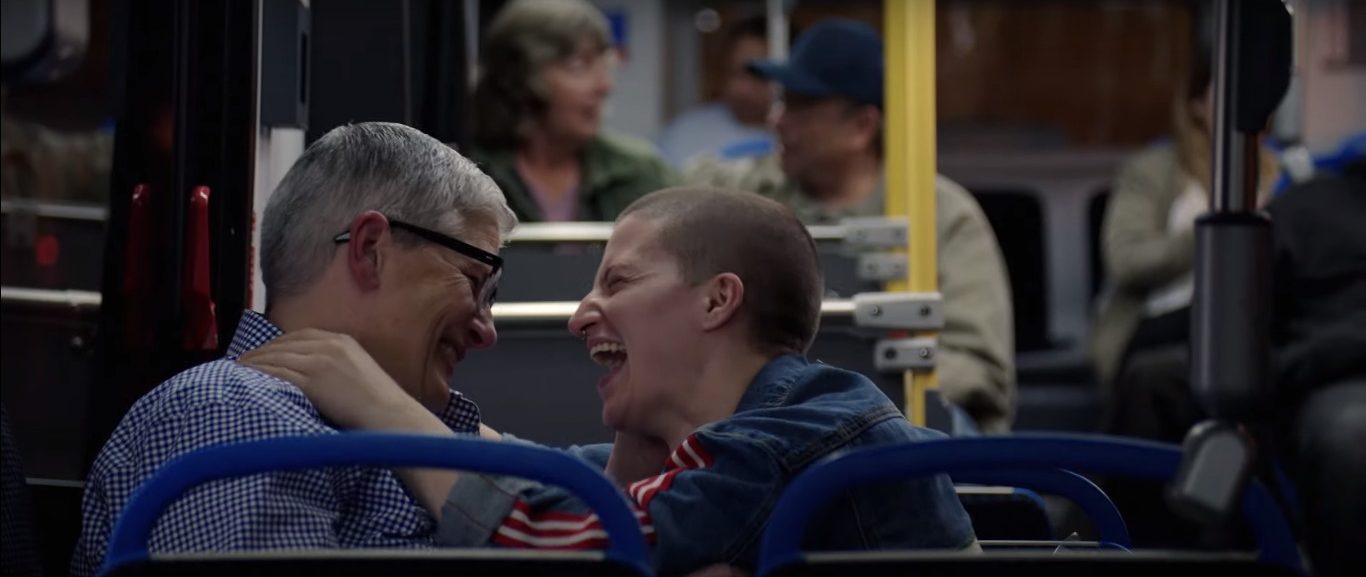‘Work in Progress’ is a comedy series on Showtime that follows Abby, who finds herself in an enchanting relationship right when she is in the throes of despair and thinking of giving up on life. The central character Abby, who refers to herself as a “fat, queer dyke,” and the show in general, takes a refreshingly matter-of-fact look at LGBTQ+ relationships and the bumpy terrain they, like most relationships, entail.
A story that seems heartfelt and personal, and yet quite unique and different from most other depictions of love stories from the LGBTQ+ community, we decided to examine whether the narrative of ‘Work in Progress’ is rooted in reality or not. Here’s what we found out!
Is Work in Progress Based on a True Story?
‘Work in Progress’ is partly based on a true story. The show is co-created by Abby McEnany and Tim Mason, from an idea that originated from the creative mind of the former. McEnany, who also essays the lead character Abby, says that the show’s central character is loosely based on her life. Having enrolled at Second City, an improv comedy enterprise in Chicago, where Stephen Colbert was one of her teachers, Abby then started working on sketch comedy. The show’s origins lie in an act that McEnany scripted and performed at the iOS Theatre in Chicago in 2016, which was titled ‘Work in Progress.’

As the night’s theme was ‘My Biggest Mistake,’ the comedian created a 55-minute show based on her real-life stories as a queer woman living with mental illness. Soon after, Tim Mason suggested that a show be created out of the piece, and the two then worked on a pilot episode that got selected to be screened at the 2019 Sundance Film Festival. The prolific Lilly Wachowski (‘The Matrix,’ ‘Cloud Atlas‘) subsequently came on board for the rest of the show’s scripting with McEnany and Mason, along with a talented team of writers.
Mason and McEnany’s long history on the Chicago comedy circuit gives the show its effortless comedy, even when it grapples with weighty subjects like mental illness. Just like the protagonist, McEnany also lives with depression and obsessive-compulsive disorder. Since the central character is loosely based on her, some of Abby’s experiences are recreated on the show, most notably her relationship with Chris—a much younger trans man. McEnany was once in a relationship with a trans man named Alex, and much like on the show, the comedian initially misread their orientation.
Talking about it, McEnany said, “That actually was based on a real – my real-life relationship with my ex-boyfriend, Alex. And I have to say, they now use they/them pronouns. I think in the show, you know, it kind of turns into this joke. But I have to say, a friendly acquaintance asked me that back in 2009 when I told them I was dating this young trans man, and it was sort of accusatory.” She added, “So I guess you’re not a lesbian anymore. And in my mind, I was like, do you have a whiteboard at home with all the lesbians? Are you going to move – are you going to take me off? Like, who cares?”
Making mistakes, and overcoming them to come out as better, more aware versions of ourselves, seems to be the overarching theme of the show and one that McEnany echoes. Her real-life insecurities over her weight are also reflected in the show, and the fact that the central character is overweight is something that the co-creator seemingly finds revolutionary. In the end, McEnany states that ‘Work in Progress’ is aimed at all those that feel isolated, and its objective is to tell them that it is possible to have a life without shame and that people should stick with it.
Through her central character and her own life experiences that have led her to become the voice of a community, McEnany essentially imbibes the show with her own spirit. Therefore, despite the characters and some of the storylines being fictionalized for dramatic effect, the shown faithfully reflects many aspects of her day-to-day life and the very real but lesser-known experiences of a section of the LGBTQ+ community.
Read More: Where is Work in Progress Filmed?


You must be logged in to post a comment.